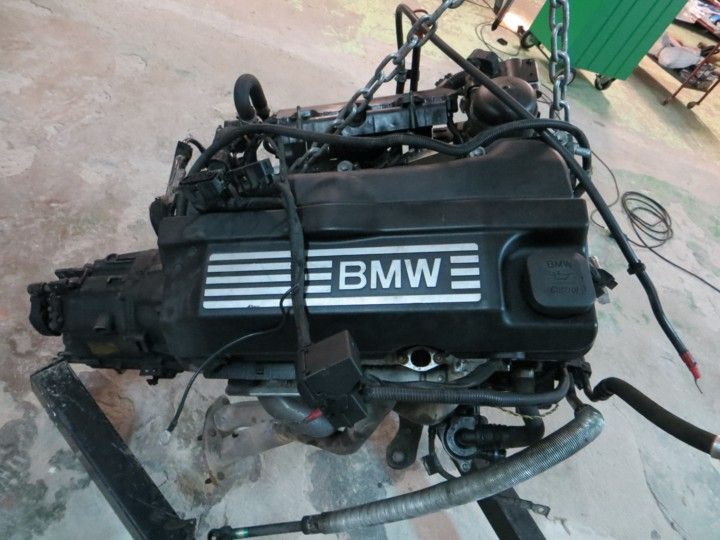BMW 318ti Evaluation: What Makes This Version Stand Out
BMW 318ti Evaluation: What Makes This Version Stand Out
Blog Article
Important Factors To Consider for Selecting the very best Engine for Your Demands
In the realm of picking the perfect engine to meet your needs, several crucial factors need meticulous consideration to guarantee ideal efficiency and efficiency. From the nuanced equilibrium in between power and performance to the often-overlooked aspects of maintenance and service demands, each aspect plays a pivotal role in identifying the most suitable engine for your specific demands.
Power and Efficiency
When evaluating engines for ideal performance, it is important to prioritize both power outcome and performance. Power result gauges the ability of an engine to produce energy, which straight influences its performance. A high power result is crucial for demanding jobs such as high-speed demands or sturdy applications. It guarantees that the engine can deal with the work effectively and effectively. Nonetheless, power alone is not adequate; performance plays a substantial duty in establishing the general efficiency of an engine. Efficiency describes exactly how well the engine transforms fuel into functional power. An extra effective engine will deliver better mileage, lower emissions, and lowered operating costs. Striking the appropriate balance between power outcome and effectiveness is crucial to selecting an engine that meets your certain demands. When making this choice, it is vital to take into consideration aspects such as the intended use of the engine, ecological effect, and lasting cost effects. By carefully examining both power and efficiency, you can select an engine that supplies optimal performance and satisfies your requirements properly.
Fuel Effectiveness and Economy
Gas performance refers to the engine's capacity to convert fuel right into energy with minimal waste, directly influencing operating prices and ecological sustainability. Engines with higher gas effectiveness not only reduce gas expenditures however likewise decrease carbon discharges, contributing to a greener operation.

Compatibility and Application
Considering the fuel efficiency and economic situation of an engine, the next critical element to address is its compatibility and application within details operational contexts. Compatibility describes how well the engine incorporates with the overall system or tools it powers. It involves elements such as physical measurements, mounting choices, electrical interfaces, and control systems. Making sure compatibility is vital to stop concerns such as overheating, vibrations, or power imbalances (bmw 318ti).
Different engines are created for certain functions, whether it be commercial machinery, marine vessels, vehicles, or power generators. Understanding the designated application enables for the choice of an engine that can deliver the required power outcome, torque, and operational characteristics.
Upkeep and Service Demands
Upkeep and solution requirements play a vital role in guaranteeing the long life and optimal performance of an engine. Routine upkeep is necessary to avoid malfunctions, expand the lifespan of the engine, and maintain its effectiveness. When picking an engine, it is important to consider the producer's suggested upkeep timetable and the accessibility of solution centers or qualified professionals.
Factors such as the frequency of oil adjustments, filter substitutes, and total examinations can significantly impact the engine's performance. Some engines may require more frequent servicing based upon their design and usage, while others may have longer visite site intervals between upkeep checks. It is essential to abide by these solution demands to stay clear of pricey fixings and unforeseen downtime.

Price and Budget Plan Considerations
Spending plan restrictions frequently play a significant duty in the decision-making process Extra resources when picking an engine for a specific application. When thinking about the cost and budget effects of picking an engine, it is important to analyze not only the initial purchase cost but also the long-term expenses connected with maintenance, gas consumption, and prospective upgrades or fixings. It is vital to strike a balance between the upfront expense of the engine and its overall lifecycle expenses to make certain that the chosen engine stays monetarily sustainable throughout its operational life-span.
Elements such as gas sturdiness, integrity, and performance can straight influence the total cost of ownership of an engine. While a more expensive engine may have higher in advance prices, it can potentially lead to reduced upkeep and fuel expenditures over time, hence offering much better value in the future. Furthermore, taking into consideration the availability and expense of spare parts, as well as the ease of maintenance and service, can help prevent unforeseen economic stress in the future. By meticulously evaluating these price and budget factors to consider, you can make an enlightened choice that aligns with your financial constraints and operational requirements.
Conclusion

Gas efficiency refers to the engine's capacity to transform fuel into power with marginal waste, directly affecting operating expenses and ecological sustainability.Elements affecting fuel efficiency consist of engine layout, burning efficiency, and general efficiency optimization. In addition, selecting the proper gas kind and quality as recommended by the engine producer can additionally boost performance and lengthen engine life expectancy.
Engines with great utility functions and easily available parts can minimize maintenance expenses and lessen the time the engine is out of procedure - bmw 318ti. It is vital to strike an equilibrium between the upfront price of the engine and its total lifecycle costs to guarantee that the chosen engine remains economically sustainable throughout its operational life-span
Report this page